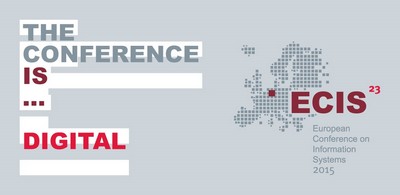DOI
10.18151/7217397
Abstract
Improving decision quality in managerial decision processes through business intelligence and analytics (BI&A) is a crucial and challenging task. BI&A equips analytics experts with the technological capabilities for supporting decision makers and supplying them with high quality information. Results from related management research on decision processes suggest that, due to varying levels of political behavior and procedural rationality among decision stakeholders, the positive impact of high information quality on decision outcomes cannot be taken for granted. This research addresses the theoretically neglected interplay between information quality and characteristics of collaboration procedures among decision makers and analytics experts in shaping the outcomes of decision processes. We build on an ambidextrous conception of collaboration procedures, which considers process rigor and agility as two main characteristics. By using a multiple case study approach, we investigate eleven BI&A-supported decision processes, and our paper makes three contributions. First, we investigate political behavior, procedural rationality, and their impact on decision quality. Second, we examine ambidexterity of collaboration procedures in BI&A-supported decision processes. Third, we provide evidence on the complementary relationship between ambidexterity and information quality and its effects on decision processes and their outcomes. Finally, we discuss our study’s implications for theory and practice.
Recommended Citation
Kowalczyk, Martin and Buxmann, Peter, "Perspectives on Collaboration Procedures and Politics During the Support of Decision Processes with Business Intelligence & Analytics" (2015). ECIS 2015 Completed Research Papers. Paper 109.
ISBN 978-3-00-050284-2
https://aisel.aisnet.org/ecis2015_cr/109


